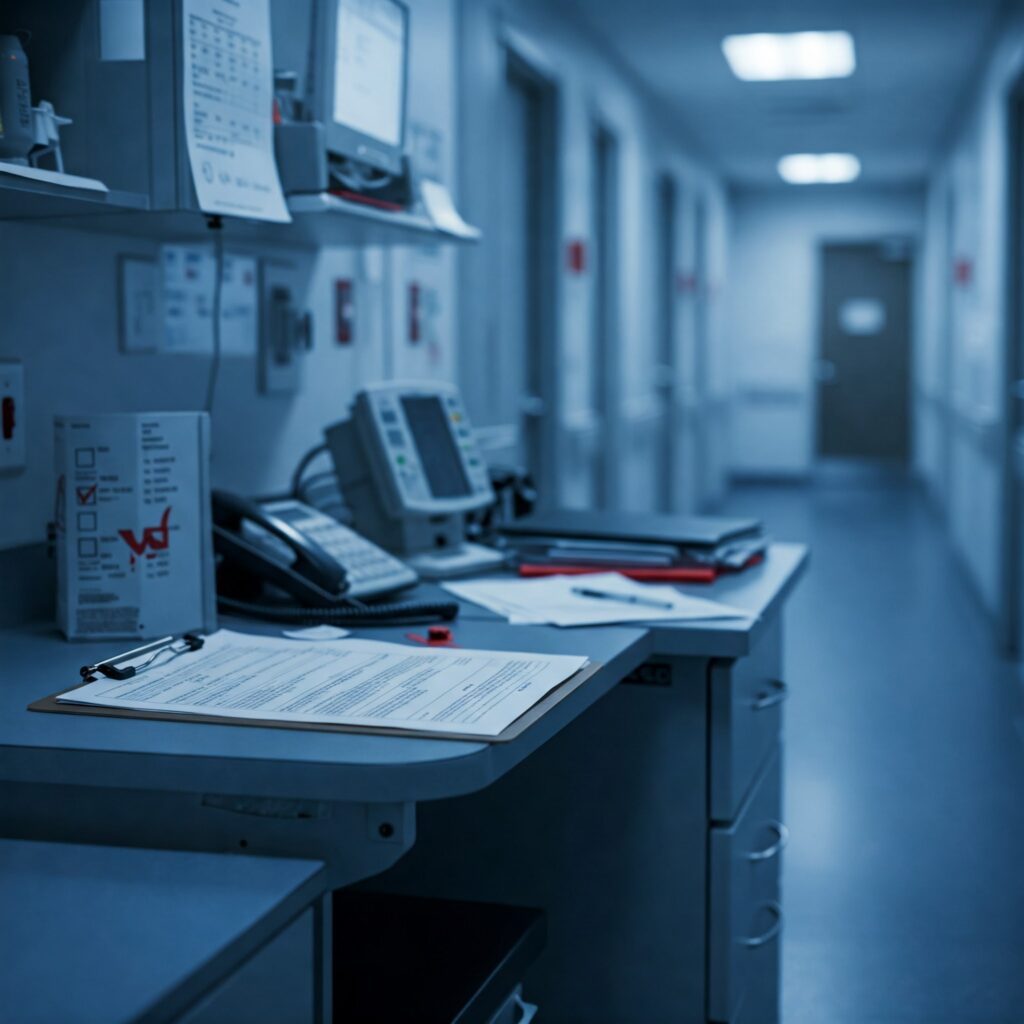By Garret DeReus
Louisiana’s healthcare system faces significant oversight challenges, with nearly 10% of nurses receiving adverse action reports in 2024. This article examines the alarming rate of adverse incidents across various healthcare settings, including Intermediate Care Facilities and nursing homes, where thousands of vulnerable residents may be at risk. I explore common forms of nursing negligence and the systemic issues that allow such problems to persist.

The Alarming Scale of Adverse Action Against Nurses in Louisiana
Louisiana’s healthcare system faces a troubling reality when it comes to nursing oversight and accountability. In 2024 alone, there were 1,003 adverse action reports filed against nurses across all categories—advanced practice nurses, registered nurses, practical nurses, and para-professional nurses. With only 11,412 National Practitioner Data Bank participants in these categories, this represents a staggering 8.8% rate of adverse actions.
This nearly 10% rate of adverse actions isn’t just a statistic—it represents hundreds of potential instances where patients may have received substandard care, experienced harm, or where their rights may have been violated. For context, this means that approximately one in every ten nurses in Louisiana has been subject to an adverse action report, raising serious questions about the quality of nursing care throughout the state.
Understanding the Oversight Gap in Louisiana’s Healthcare System
The oversight challenges seen in Louisiana’s Intermediate Care Facilities (ICFs) provide a window into broader systemic issues affecting nursing care across all healthcare settings. From 2019-2023, the Louisiana Department of Health received 718 complaints about ICF facilities, while the facilities themselves reported 4,698 incidents related to abuse and neglect.
Though not all of these incidents involved nurses specifically, these numbers are particularly alarming considering that ICFs serve only 4,122 residents in Louisiana. Even more concerning, as of August 2024, Louisiana had 17,549 people residing in nursing home facilities, more than four times the number in ICFs. Despite this large population of vulnerable residents, there is no publicly available data on how many self-reported incidents of abuse and neglect occur in nursing home facilities.
This lack of transparency creates a significant blind spot in our understanding of nursing negligence across Louisiana’s healthcare system. If the rate of incidents in nursing homes is comparable to that in ICFs, thousands of potential cases of abuse and neglect may be occurring without adequate public oversight or accountability.
When we extrapolate these figures to include all healthcare contexts where nurses practice—including hospitals, psychiatric facilities, home health agencies, and correctional medical departments—the true scale of nursing negligence may far exceed what’s been officially documented.
Why Nursing Negligence Often Goes Unreported
The pattern of inadequate investigation seen in Louisiana’s ICF system suggests a troubling reality: many instances of misconduct likely go unreported or uninvestigated. In Louisiana, less than 1% of self-reported abuse and neglect incidents in ICFs received investigation by the Louisiana Department of Health. Similar oversight gaps likely exist in monitoring nursing practice across all healthcare settings.
Several factors may contribute to this underreporting phenomenon:
- Fear of retaliation among patients and families
- Institutional cultures that discourage incident reporting
- Inadequate staffing for proper regulatory oversight
- Complex reporting systems that discourage complaints
- Profit focus by facilities with violations
Common Forms of Nursing Negligence in Louisiana
Nursing negligence can take many forms, all with potentially serious consequences for patients. Some of the forms of nursing negligence can include:
- Medication errors (wrong medication, incorrect dosage, or missed administration)
- Failure to properly monitor patients requiring supervision
- Inadequate response to changes in patient condition
- Improper wound care leading to infections
- Failure to follow physician orders
- Insufficient documentation of patient care
- Physical or emotional abuse of patients
- Neglect of basic patient needs such as hydration, nutrition, and hygiene
These failures in the standard of care can result in serious patient harm, including worsened medical conditions, unnecessary pain, preventable infections, injuries from falls, and in some cases, premature death.
Legal Options for Victims of Nursing Negligence and Misconduct
For individuals who have suffered harm due to nursing negligence in Louisiana, legal remedies can be explored.
Successful claims may provide compensation for medical expenses, pain and suffering, emotional and mental anguish, etc. However, these cases often involve complex medical issues and require thorough investigation and expert testimony to establish liability.
Ultimately, given that systemic issues exist within Louisiana healthcare system, individual legal action remains an important tool for both seeking justice for victims and creating accountability within the healthcare system.
If you or a loved one has experienced harm due to nursing negligence in a Louisiana healthcare facility, contact our firm for a confidential consultation.